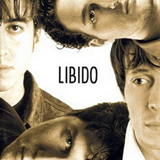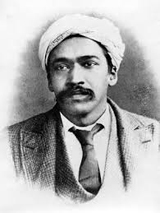Notes on counselling
The power of money
Abstract
Both the materialistic idea of possession of money and its ascetic rejection do not do justice to the spiritual value of wealth. Logically wealth belongs to humanity, metaphysically to the Divine. Money has to be won back from the clutches of falsehood for service to the Truth. An appreciation of the true value of money is needed in education and counselling.
One of the things that can anguish any counsellor is the way in which one outrageously handles money. The manner in which one demonstrates possessiveness with money is simply ludicrous. It is similar to a weird passenger on a flight who behaves as if the seat allotted to him is a personal property and pounces on an innocent fellow-passenger who mistakenly encroaches. Obviously, this passenger is momentarily oblivious of the fact that after the flight reaches its destination, the seat is to be occupied by another passenger. It is the same story with money. Money is not an individual possession. Like political power, it is with one subject today and can be with another subject tomorrow. Perhaps one of the most eulogised yet foolish things in life is the sense of possession of money.
A frequent answer at my clinic when I enquire about the source of funds from a youngster misusing money on drugs or on other extravagantly disproportionate pursuits that impoverish the family coffers, is ‘It’s my money. I earned it’; or, ‘It’s my family fund. I have a right to spend’. Very often I have to remind that the money earned belongs to the general population who contributed either as tax-payers or consumers. Hence it is right for any citizen to enquire about the misuse of money by anyone. Even the vagabond at the street corner pays taxes when purchasing a pack of cigarettes and therefore has a right to have explanations for misuse of money. Why not?
This recurring experience with possessiveness over money makes me wonder why we aren’t taught in school about the real, albeit divine worth of money. The Mother lucidly explains:
“The conflict about money is what might be called a ‘conflict of ownership’, but the truth is that money belongs to no one. This idea of possessing money has warped everything. Money should not be a ‘possession’: like power it is a means of action which is given to you, but you must use it … in an impersonal and enlightened way. If you are a good instrument for diffusing and utilising money, then it comes to you, and it comes to you in proportion to your capacity to use it as it is meant to be used. That is the true mechanism(1).” Sri Aurobindo adds:
“All wealth belongs to the Divine and those who hold it are trustees, not possessors. It is with them today, tomorrow it may be elsewhere. All depends on the way they discharge their trust while it is with them, in what spirit, with what consciousness in their use of it, to what purpose (2).” Logically speaking, money belongs to the entire nation and as an extension, to entire mankind. Metaphysically speaking, all wealth belongs to the Divine and needs to be consecrated to the service of Truth. The greatest problem with money is that currently it is in the hands of adverse forces, exalted by desire, strengthened by greed and consumed at the altar of Falsehood.
Western psychology itself has given scant regard to the power of money which is surprising as the West has nurtured a more materialistic culture. The major schools of psychology laid emphasis on the libido or power or aggression or behaviour to understand the underlying forces that sustain our life. Money was definitely never put on the same pedestal as Freud’s libido, Adler’s power or Watson’s behaviour. In contrast the Indian tradition was more pragmatic and realistic because it had classically laid down that the four main motivators that gave meaning to life-pursuits were Dharma (the path of Self-righteousness), Artha (money-power), Kāma (the power of the vital, the repertoire of desire where the libidinal energy was represented) and Mokṣa (liberation from ego-mediated worldly pleasures). For all practical purposes, the four motivators were given equal value that were significant for different individuals as also for the same individual at different phases of life.
Despite the practical connotation about money in the Indian tradition, what was actually regarded with sanctity was the ascetic rejection of wealth. This did not imply that the ascetic withdrawal was pursued in a generalised manner, what happened instead was that the detachment from money was placed on a very high pedestal leading to spiritual munificence at the cost of impoverishment of life.
Money and Truth
Sri Aurobindo corrects the bias by affirming that money has to be won back from the clutches of Falsehood to be placed at the service of the Truth:
“Money is the visible sign of a universal force, and this force in its manifestation on earth works on the vital and physical planes and is indispensable to the fullness of the outer life. In its origin and its true action it belongs to the Divine. But like other powers of the Divine it is delegated here and in the ignorance of the lower Nature can be usurped for the uses of the ego or held by Asuric influences and perverted to their purpose (3).”
Sri Aurobindo charts the psychological roadmap for the spiritual value of wealth:
“If you are free from the money-taint but without any ascetic withdrawal, you will have a greater power to command the money for the divine work. Equality of mind, absence of demand and the full dedication of all you possess and receive and all your power of acquisition to the Divine Shakti and her work are the signs of this freedom. Any perturbation of mind with regard to money and its use, any claim, any grudging is a sure index of some imperfection or bondage (4).”
In this scheme of things, one is at ease and in perfect equipoise whether in poverty or in plenitude. Money is not meant merely to generate money:
“Money is meant to increase the wealth, the prosperity and the productiveness of a group, a country or, better, of the whole earth. Money is a means, a force, a power, and not an end in itself. And like all forces and all powers, it is by movement and circulation that it grows and increases its power, not by accumulation and stagnation (5).” “When money indeed is to be accumulated, it must be for a greater construction, not for the possessive habit of the miser but in consonance with the capacity to use it on a very large scale (6).”
It is therefore imperative to include the study of the true value of money and the right use of money from a very young age both in educational and personality development programmes. If children could be made to learn the true worth of wealth, they would not succumb to the forces of consumerism. They would know how to use money to realise great dreams and aspirations for the benefit of humanity and for the expansion of the frontiers of knowledge.
However, in Sri Aurobindo and the Mother’s scheme of things, the true value of wealth has a greater purpose, “... money is meant to make the earth ready for the advent of the new creation (7).” The evolutionary growth in consciousness which has been envisaged by Sri Aurobindo to culminate in the embodiment of the Superconscious Supramental Consciousness in a superior humanity of gnostic beings cannot be consummated by an ascetic impoverishment but is commensurate with a glorified service of wealth at the altar of the Truth:
“In the supramental creation the money-force has to be restored to the Divine Power and used for a true and beautiful and harmonious equipment and ordering of a new divinised vital and physical existence in whatever way the Divine Mother herself decides in her creative vision. But first it must be conquered back for her and those will be strongest for the conquest who are in this part of their nature strong and large and free from ego and surrendered without any claim or withholding or hesitation , pure and powerful channels for the Supreme Puissance (8).”
References
1. The Mother. Collected Works of the Mother, Volume 13. Cent. ed. Pondicherry: Sri Aurobindo Ashram Trust; 1980, pp. 275-6.
2. Sri Aurobindo. Birth Centenary Library, Volume 25. Pondicherry: Sri Aurobindo Ashram Trust; 1972, p. 12.
3. Ibid., p.11.
4. Ibid., p.13.
5. The Mother. Collected Works, Volume 13. p. 154
6. Ibid. p. 276.
7. The Mother. Collected Works, Volume 15. Pondicherry: Sri Aurobindo Ashram Trust; 1978, p. 53.
8. Sri Aurobindo. SABCL. Volume 25. p. 14.
Dr. Soumitra Basu, a practising psychiatrist and member of SAIIIHR, is the Director of a school of psychology, Integral Yoga Psychology. He is also one of the editors of NAMAH.
Share with us (Comments, contributions, opinions)
When reproducing this feature, please credit NAMAH, and give the byline. Please send us cuttings.




